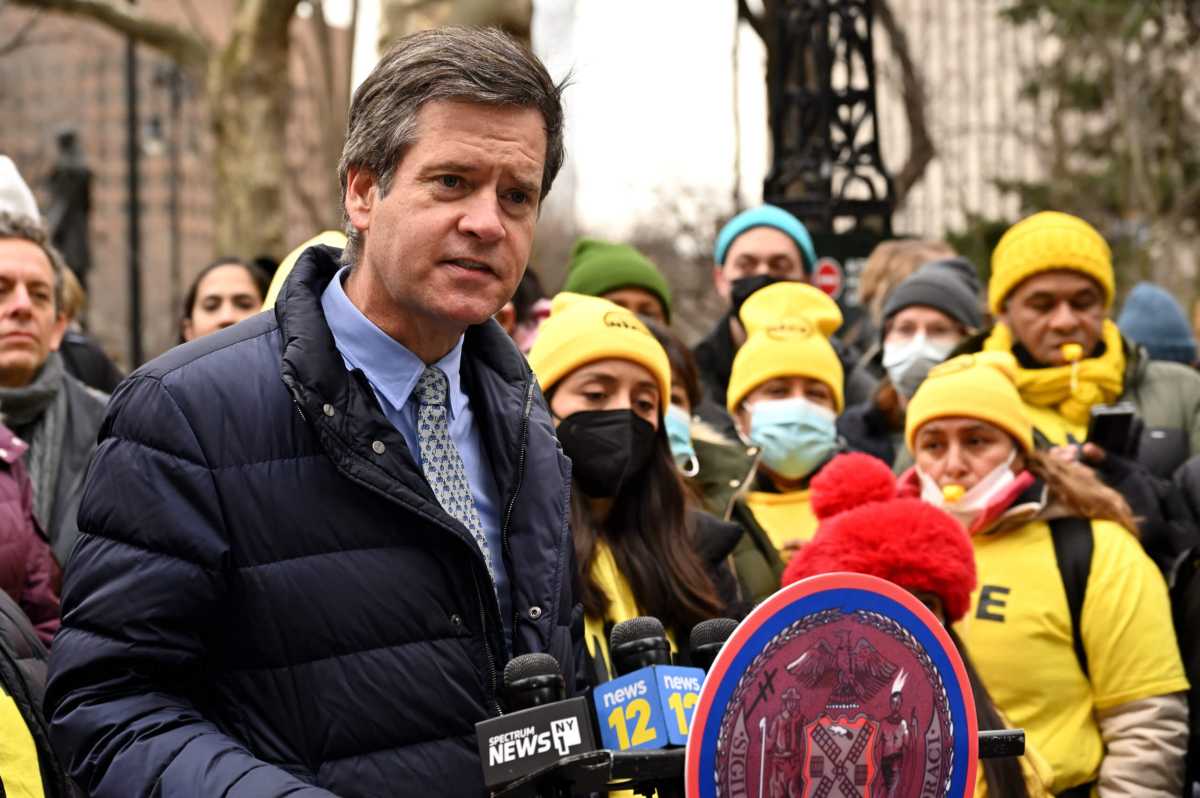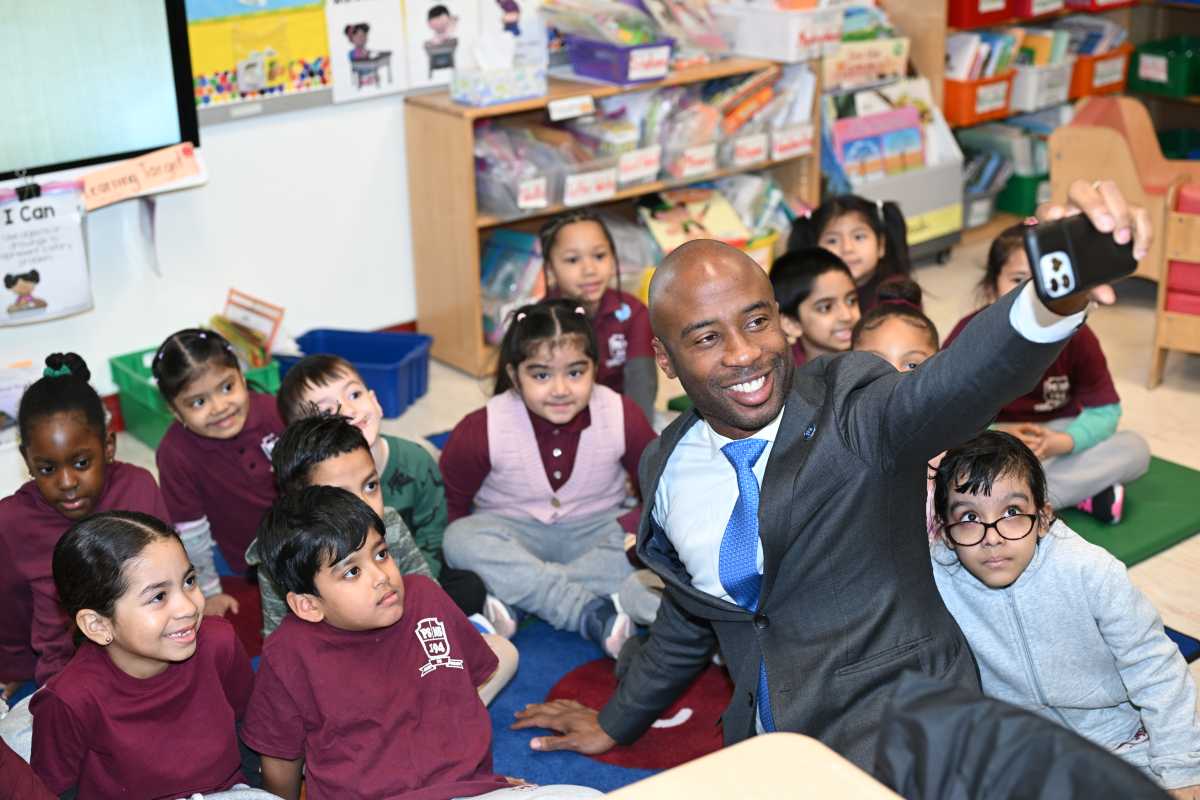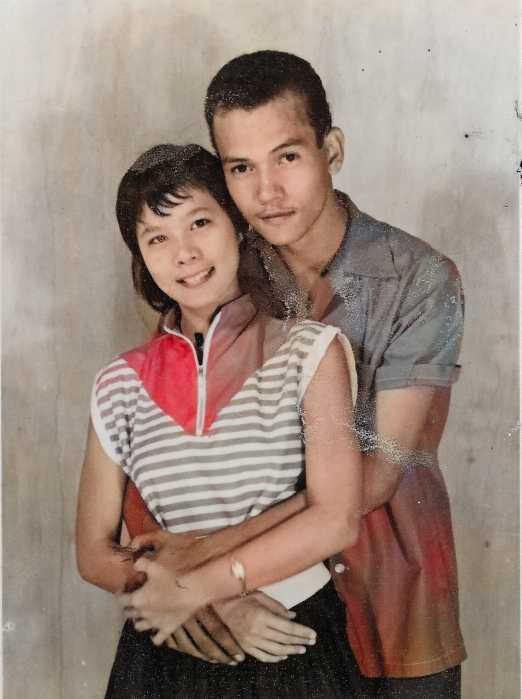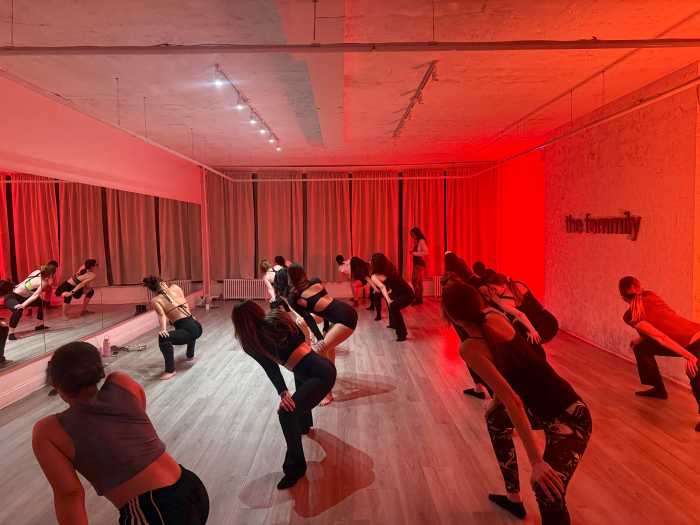Out gay State Senator Brad Hoylman-Sigal of Manhattan has called on New York State Inspector General Lucy Lang to investigate Yeshiva University’s use of government funds for any potential violations of the Dormitory Authority of the State of New York (DASNY) the school’s ongoing campaign to deny recognition of the YU Pride Alliance, an undergraduate LGBTQ student group.
The request came less than three months after Hoylman-Sigal and two other state lawmakers signed a letter expressing concern about discriminatory treatment of students while the school receives funding from the DASNY.
YU received $230 million in government funds through DASNY as a higher education institution, but the university is claiming to be a religious institution to deny recognition of the LGBTQ student group on campus, placing future government funding in jeopardy. New York County Supreme Court Justice Lynn R. Kotler Justice Kotler found that its most recent corporate charter clarified that it is a non-sectarian educational institution, not a religious corporation.
As a religious institution, the university would be able to discriminate by operating outside of government anti-discrimination laws, which it is claiming in its legal battle, but it would forfeit public funding. As an educational institution, which it claimed to the government and in its charter, the university must adhere to anti-discrimination laws and has access to government funding.
“[The students in the YU Pride Alliance] are really admirable in their efforts and I think it’s incumbent on elected officials to stand for what we also need, which is separation of church and state,” Hoylman-Sigal told Gay City News in a January interview.
DASNY is a public finance and construction agency that provides low-cost, tax-exempt bond financing for the public construction organization. For more than 75 years, DASNY has worked with health care, higher education, and public use facilities statewide, according to its website. According to the March 27 letter to Lang from Hoylman-Sigal, the university received DASNY-issued bonds in 2009, 2011, and 2022, and on other occasions to finance the construction and renovation of its buildings and facilities.
The university had to meet certain criteria, such as not using the funds for “sectarian religious instruction or as a place of religious worship or in connection with any part of a program of a school or department of divinity for any religious denomination,” according to the excerpt of the agreement included in the letter. The university continues to refuse to recognize YU Pride Alliance.
Founded as a Jewish rabbinical seminary in 1886, YU established Yeshiva College in 1928 with liberal arts programs. The college began offering graduate programs in 1935. In 1945, YU officially became a university. The university has more than 6,000 students on four campuses in Manhattan and the Bronx.
The school has been embroiled in the legal battle against YU Pride Alliance ever since the student group sued the school for discrimination. The alliance has racked up wins so far, from the New York County Supreme Court to the New York Appellate Division, First Department, and when the university attempted to go directly to the United States Supreme Court in August 2022, SCOTUS returned the case to the New York State courts and ordered YU to recognize the alliance while the case made its way through the courts.
The university promptly shut down all undergraduate student clubs on campus. The alliance offered a compromise, which was rejected by the university, and instead, in October of last year, the school launched its own “queer student group,” Kol Yisrael Areivim Club, which roughly translates to “all responsible for each other.” Alliance members called it a “sham.”
YU graduate students who have a separate queer student group are not affiliated with or affected by the YU Pride Alliance lawsuit.
In recent months, university increasingly faced funding questions from local and state politicians. Hoylman-Sigal’s call for Lang to investigate the school, in which he stated that any “misrepresentations call into question whether YU used the financing for approved state purposes,” represents another development in the broader effort by political leaders to call for action.
“We cannot abide the use of state funds to support discriminatory behavior that excludes LGBTQ students from their right to an equal education,” Hoylman-Sigal, who is the chairman of the State Senate Judiciary Committee, wrote. “I urge you to investigate this matter as expeditiously as possible.”
David King, a spokesman for the inspector general’s office, told the New York Times that it had received the referral and would review it.
Hoylman-Sigal told the Times that “misrepresentation to procure public money is dishonest and could potentially violate state law.”
The university’s vice president for legal affairs and general counsel Andrew Lauer declined to answer the Times’ questions about misleading government officials and not handing over DASNY financial records.
In a statement April 3, Lauer claimed lawmakers were operating under “a fundamental misunderstanding of the facts and the law” and that “religious institutions are not precluded from receiving financing from” the state. He added that the school wasn’t discriminating against LGBTQ undergraduate students, citing that the university established an LGBTQ club on campus last year.
The university’s battle is becoming a symbol in the larger national debate between separation of church in state at a time when religious affiliated companies and privately-owned businesses and individual government workers have argued they can refuse services to groups — like the LGBTQ community – they disapprove.
Many Reform Jewish congregations have welcomed LGBTQ rabbis and congregants in recent years. Many Orthodox Jewish congregations continue to stick to a traditional definition of gender and sexuality.
DASNY spokesman Jeffrey Gordon told the Times that the organization has a long history of working with religiously affiliated colleges, but he couldn’t recall another instance when a religious college has transitioned from being legally defined as an educational institution to a religious institution.
“Well-meaning politicians are kindly asked to learn the facts before attacking Jewish education,” Lauer told the Times.





































